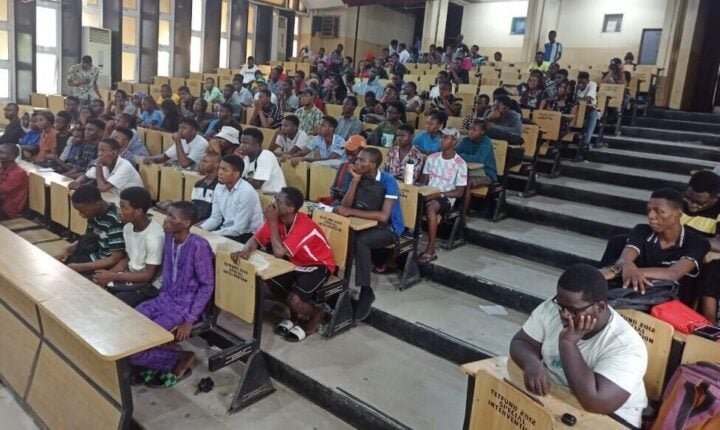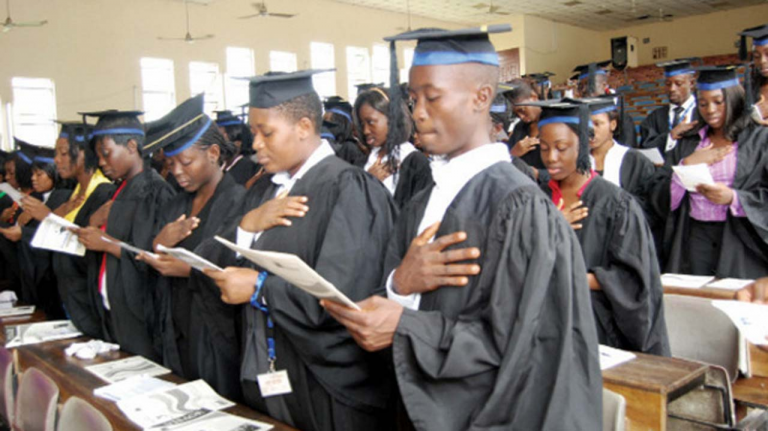When the Federal Government rolled out its much-publicised plan to “streamline” tertiary admissions, many Nigerians welcomed it as a breath of fresh air. Under the Renewed Hope Agenda, the Minister of Education, Tunji Alausa, unveiled sweeping changes to how students gain entry into universities, polytechnics, and colleges of education. On paper, the objective is noble: expand access, democratize opportunity, and reduce overcrowding in the nation’s lecture halls.
Yet the underlying risk is grave. By loosening or reshaping time-tested admission filters, the policy threatens to erode meritocracy in our educational system. It teeters dangerously close to replacing excellence with mere quota-friendly admission. And in doing so, it could usher in a silent but devastating decline: the slow death of merit.
No one contests that Nigeria’s tertiary admission challenge is real. Every year, millions of candidates sit the Unified Tertiary Matriculation Examination (UTME), but only a fraction land admission slots. The bottleneck is undeniable. But we must ask: should the answer lie in easing entry bars — or in strengthening the entire system to absorb more students without sacrificing quality?

Table of Contents
The Risk of Diluting Standards
JAMB, with all its flaws, has long served as a national leveling instrument — a standard comparator so that a student from Borno competes under the same rubric as a student from Ogun. It may not be perfect, but it maintains at least a shared baseline of equity. To sideline or dethrone it is to invite subjectivity into what should be an objective process.
Critics of JAMB often point to its rigidity or its occasional inconsistencies. But JAMB’s bigger limitation is symptomatic: the education system’s inability to scale in infrastructure, teaching staff, funding, and technological support. You can open the gates wider, but if lecture rooms, labs, libraries, and teaching personnel remain overstretched, all you do is let more students wander into a crumbling interior.
The new policy claims it will admit an additional 250,000 to 300,000 students annually. That is an ambitious leap. But unless our universities and colleges are ready — in staff numbers, physical capacity, funding, and quality assurance — we risk crashing into a morass of overcrowded classes, underutilised standards, and compromised certificates.
To admit more without ensuring learning will collapse both the process and the value. Diplomas and degrees risk becoming hollow tokens — badges awarded by quota rather than proof of competence. In a globalised academic marketplace, that would be a step backwards for Nigeria’s credibility.

True Democratization Lies in Capacity, Not Concession
If the goal is fairer access, the focus shouldn’t be on lowering the bar — it should be on raising the floor for those who struggle to reach it. The better strategy is not to dismantle rigorous screening tools, but to fortify systems for inclusion: build more polytechnics, expand distance learning, repair dilapidated infrastructure, and promote vocational routes that value talent beyond theory.
Instead of weakening JAMB’s role, we should empower it. We should explore augmenting its metrics to test not only pure academic competence but also practical, vocational, or soft-skills readiness. That way, the exam would evolve from a gatekeeper to a more holistic assessor.
Nigeria already has institutions beset by neglect: polytechnics and colleges of education often suffer in prestige, funding, morale, and recognition. A stronger policy might be to rehabilitate them, invest in them, and give aspirants alternative routes into higher learning that match their aptitudes. In other words, diversify the pathways, not devalue the principle of selection.
A reformed admission architecture must be integrated with a broader overhaul. The government should prioritise funding, build new capacity — physical, human, technological — and expand the total carrying capacity of our tertiary system before inviting a flood of new entrants.

What Is at Stake: Equity, Excellence, and Our Future
Minister Alausa’s reform may be grounded in noble intentions, but good intentions are not enough. What we risk is an illusion of progress — higher enrolment numbers masking an erosion of educational quality.
Once JAMB’s anchoring function is weakened, admission becomes vulnerable to favouritism, influence, and negotiation. The barrier between privilege and access becomes thinner. The “poor boy from Kaltungo” and the “rich girl in Ikoyi” may no longer be measured by a shared yardstick but by who wields more sway.
If we cheapen standards to appear inclusive, we unravel the very fabric of meritocracy. We may produce graduates who cannot compete internationally, whose credentials lack respect, and whose skills are suspect. That does not renew hope — it paves the way for mediocrity.
True renewal does not come by lowering the standard; it comes by uplifting those at the bottom until they can meet it. In this sense, the role of JAMB must not be marginalised but respected, reimagined, and reinforced. It should remain the last bulwark between randomness and fairness in Nigerian education.
In a fragile ecosystem, where elitism and inequity already lurk, we must not let policy slip into arbitrariness. We must guard the principle of merit — not for its own sake alone, but because it ensures that opportunity is real, not symbolic.
If this new admission policy becomes the vehicle of dilution rather than of expansion, we risk consigning generations to a substandard system. Let us insist: reforms that wreck merit are reforms in name only.
Join Our Social Media Channels:
WhatsApp: NaijaEyes
Facebook: NaijaEyes
Twitter: NaijaEyes
Instagram: NaijaEyes
TikTok: NaijaEyes
READ THE LATEST EDUCATION NEWS





